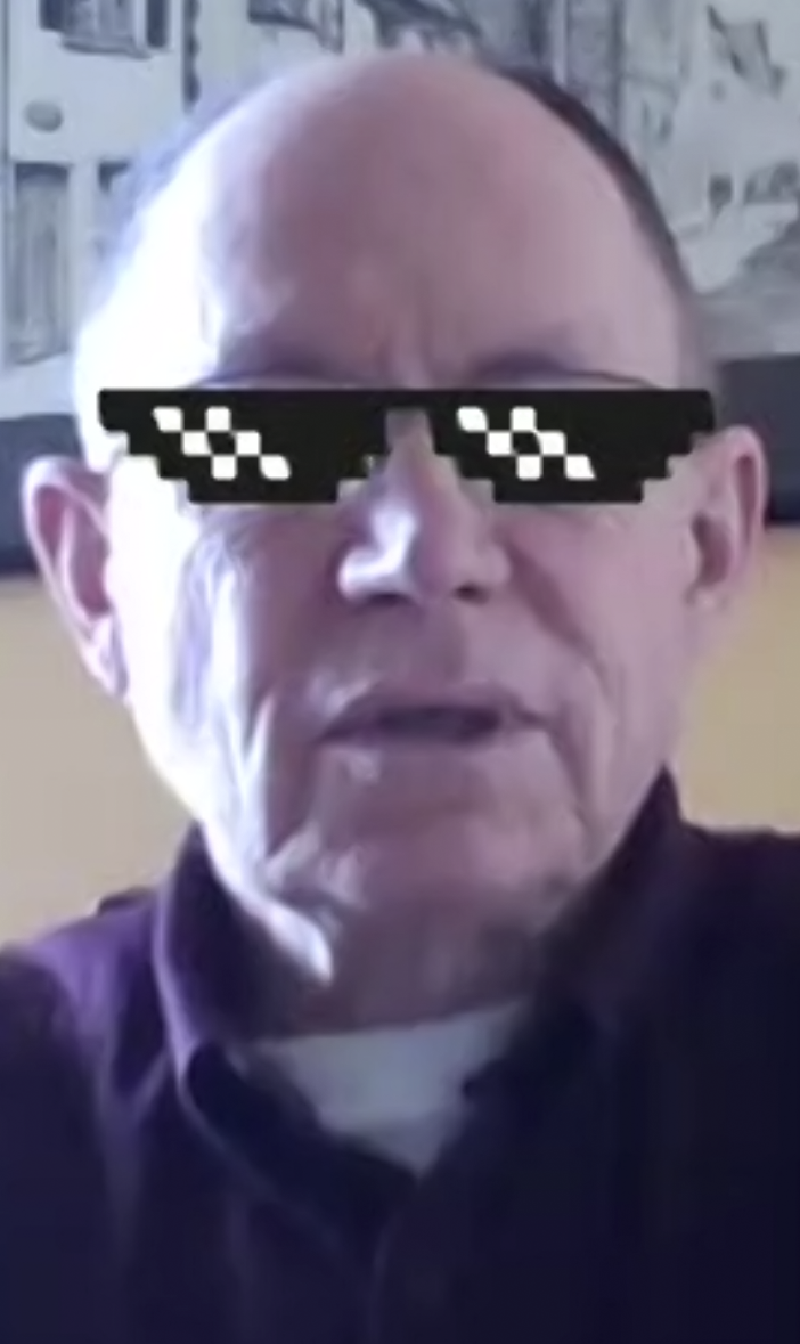 In the warm-up to the meeting, everyone had fun trying on virtual hats and masks available in Zoom as enhancements to our regular faces.
In the warm-up to the meeting, everyone had fun trying on virtual hats and masks available in Zoom as enhancements to our regular faces.President Bob Janes called us to action and welcomed 35 members and our guests Roy Bennet and Rob Fell.
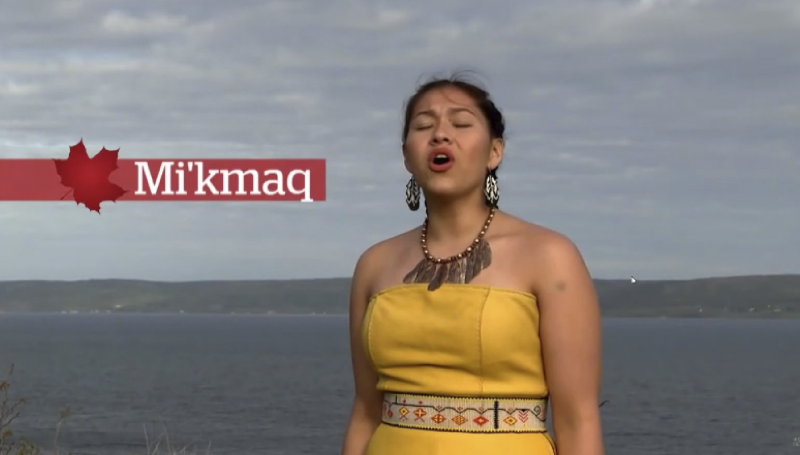 O Canada was sung in many, many languages (11) by multiple Canadians across the nation from Coast to Coast, an inspiring collation. Thank you again Laurie Bienert for finding these intriguing versions.
O Canada was sung in many, many languages (11) by multiple Canadians across the nation from Coast to Coast, an inspiring collation. Thank you again Laurie Bienert for finding these intriguing versions.Inspiration
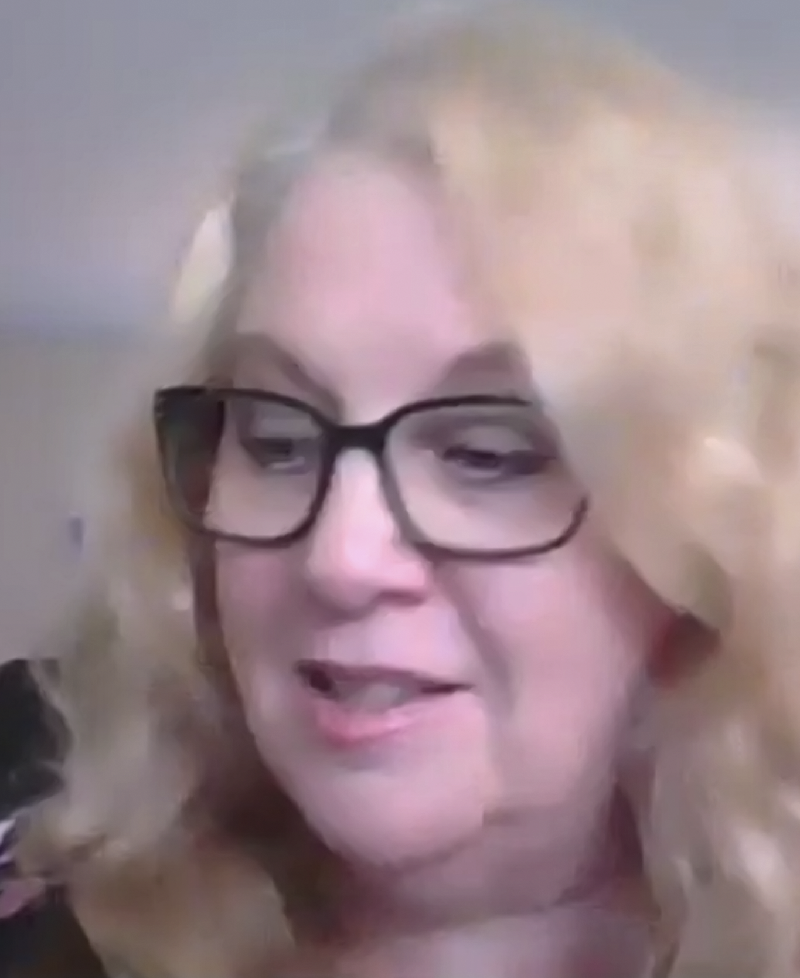 Debbie Narver gave us the Inspiration about family, particularly our big Rotary family. Nobody should feel alone, someone is always available to chat. Just pick up the phone to bring good cheer to someone. We are all connected like the cogs in the Rotary wheel.
Debbie Narver gave us the Inspiration about family, particularly our big Rotary family. Nobody should feel alone, someone is always available to chat. Just pick up the phone to bring good cheer to someone. We are all connected like the cogs in the Rotary wheel.Announcements
Unfortunately, Peggy Richardson and Geoff Clay have resigned, Peggy for health and Geoff for work commitments. They both look forward to rejoining when they are able.
We have all received an email from Marnee Obendorf, District 5020 Trainer, with details of the virtual District training day on Saturday, March 13. President Bob encouraged each of us to sign up if we are able. There are lots of choices between 8:30 a.m. and 3 p.m., including a session with RI President-elect Shekhar Mehta.
The Area 4 Public Image Committee has an initiative to have a full page at Black Press each month dedicated to Rotary. This initiative will be supported by page sponsorship. Each club is asked to find 3 sponsors each at $60 per month for 6 months, starting in April. The circulation is 32,000 and each edition is read by two people on average – very wide coverage for the sponsors. Please email President Bob by next week before his 5 Presidents meeting.
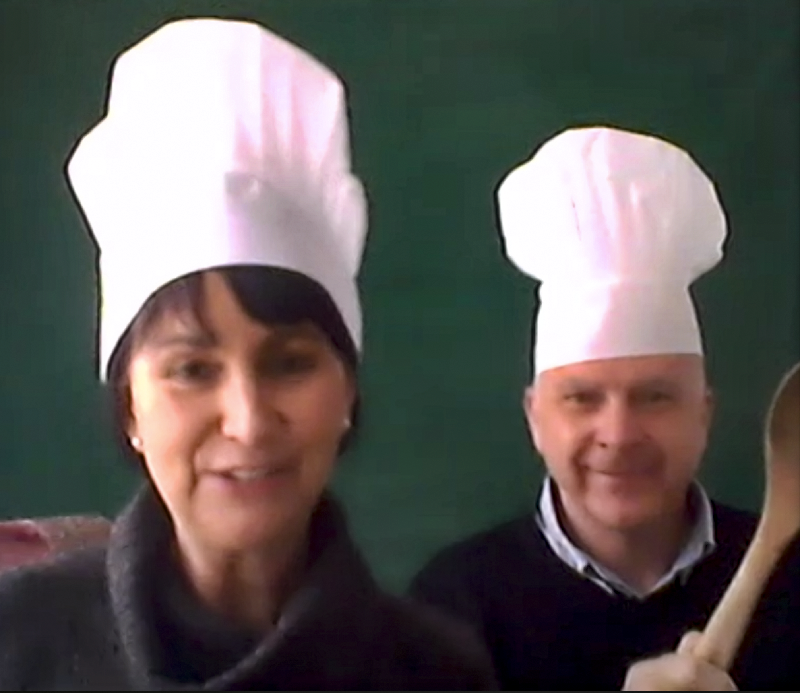 Dawn and John Hankins donned their (real) chefs hats to announce that we are cooking up a storm next Friday the 19th with Behzad and Shirin. Make sure we are all ready to cook by 5 p.m.
Dawn and John Hankins donned their (real) chefs hats to announce that we are cooking up a storm next Friday the 19th with Behzad and Shirin. Make sure we are all ready to cook by 5 p.m.John Hankins gave us an update on the progress of the Foundation donations. The key challenge is for each club member to donate a minimum of $35 CAD; only 13 members still to donate. Lucie Gosselin noted that only donations since July 1 can be counted.
Tracy Makarenko let us know that there will be another order placed for Centennial golf shirts. Please let her know by next week to add you order.
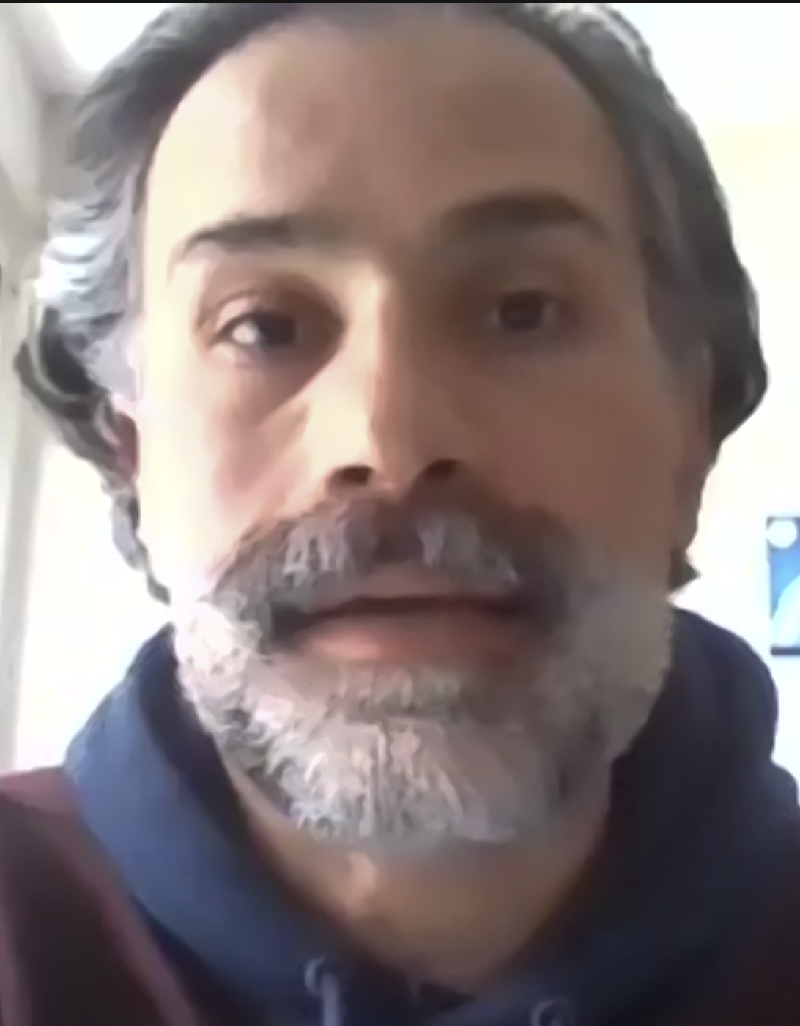 Behzad Forghani Targhi added his encouragement to the cooking evening. He and Shirin did a successful event for the Zonta Club, and have two more events planned for March.
Behzad Forghani Targhi added his encouragement to the cooking evening. He and Shirin did a successful event for the Zonta Club, and have two more events planned for March.Brent Stetar gave an update on the Book Sale. We can no longer use the Mall compactor to dispose of our culled books. They suggest that we rent a dumpster. We would like the RDN to reduce tipping fees for us, and he would appreciate members lobbying RDN Board Members.
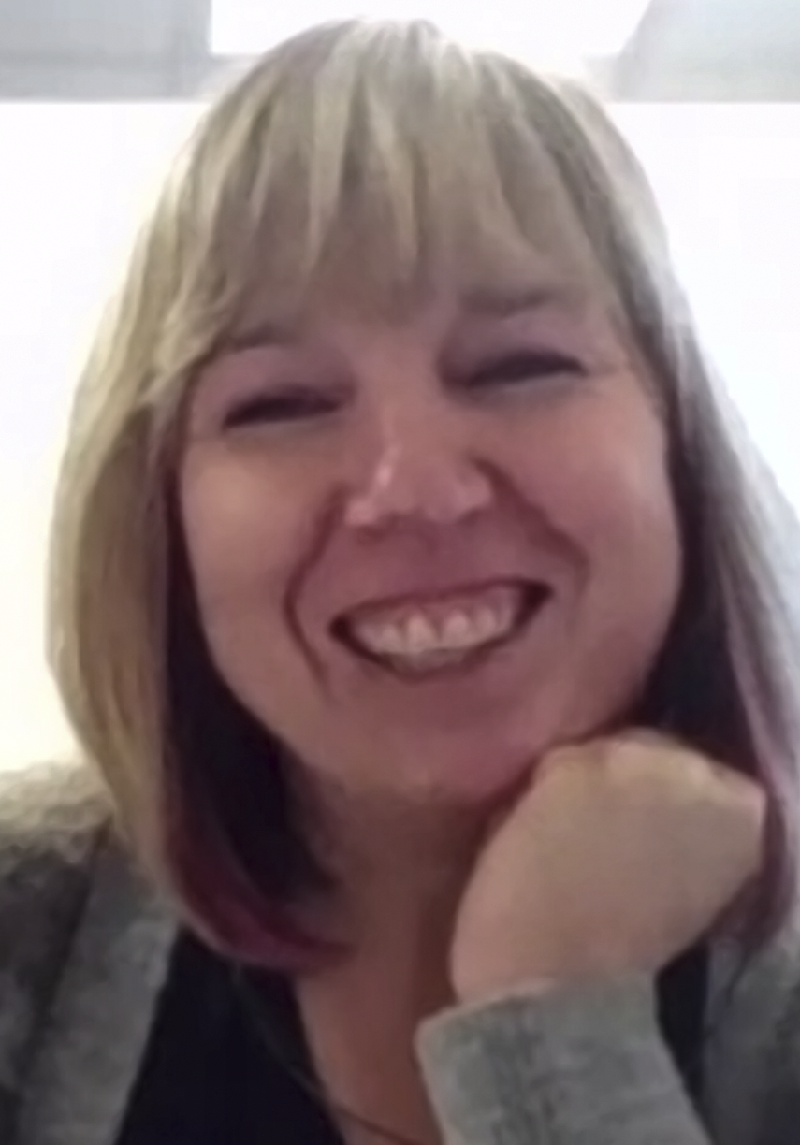 Rebecca Taylor added that she now works for the RDN and will see what can be arranged for us. Carey McIver noted that when she was in charge of solid waste that some tipping fees had been waived for recycling companies.
Rebecca Taylor added that she now works for the RDN and will see what can be arranged for us. Carey McIver noted that when she was in charge of solid waste that some tipping fees had been waived for recycling companies.John Heisterman was caught sitting inside his warm house wearing his winter coat. He is anticipating his move into the Sunset Lodge but must clean the food dribbles off his coat first.
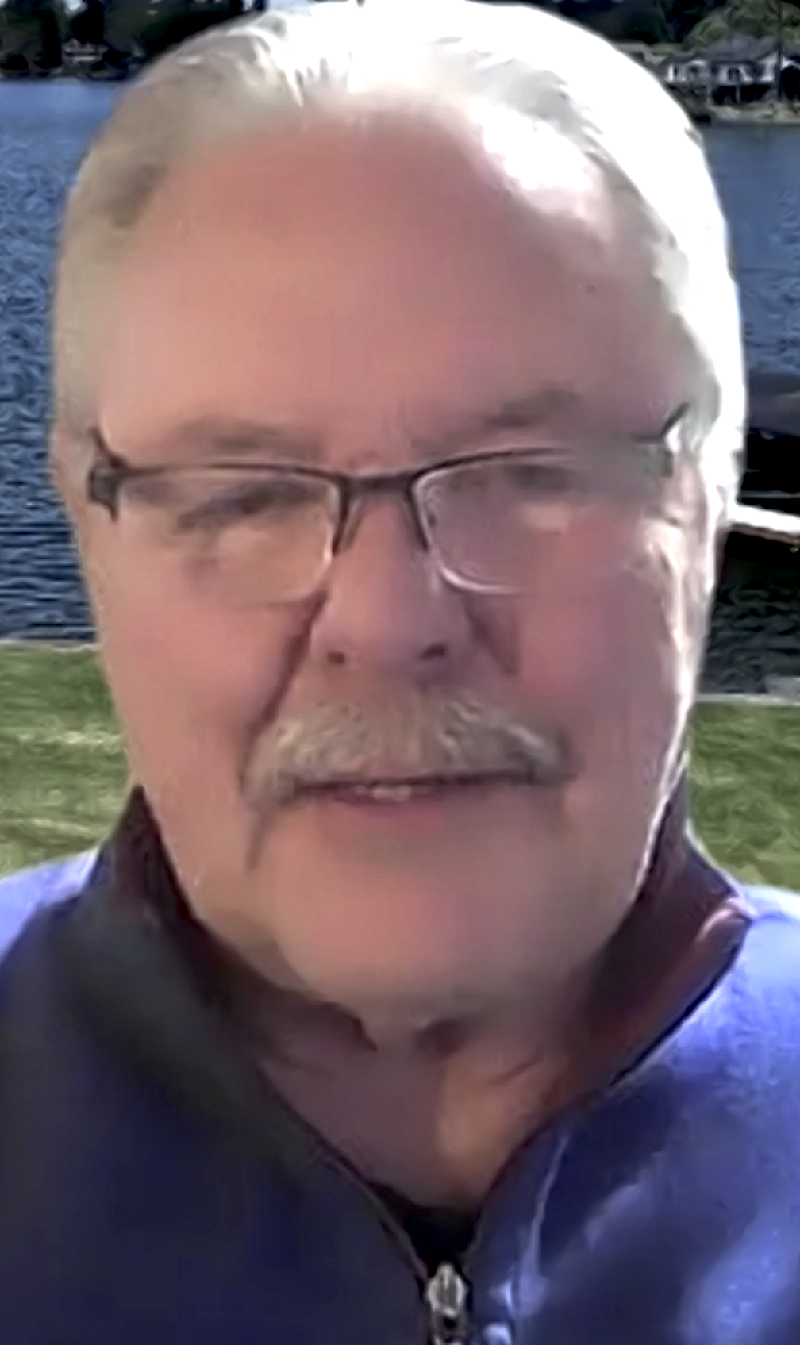 District Governor Greg Horn was excited to be back with us again in spirit. He loves visiting clubs this way and reminded us to sign up for the District training sessions mentioned above.
District Governor Greg Horn was excited to be back with us again in spirit. He loves visiting clubs this way and reminded us to sign up for the District training sessions mentioned above.Guest Speakers - Leigh Blaney and Rob Fell
Janeane Coutu introduced our speaker Leigh Blaney. Janeane first met Leigh through Eden Gardens, then when Emily (Coutu) was studying nursing at VIU. Leigh holds a BSN degree and teaches at VIU, specializing in mental health. She joined our club in July 2020 and has been very active. She developed the COVID-19 safety plan for our Book Sale in record time.
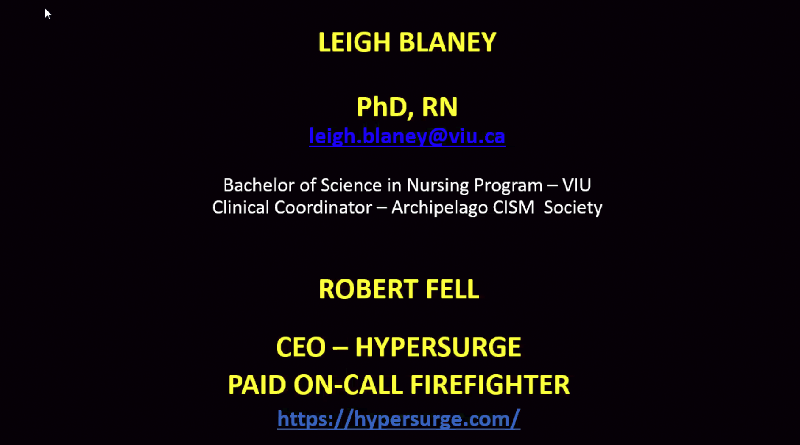 Recently Leigh and her colleague Rob Fell received a $10,000 grant from B.C. Support Unit, Vancouver Island Centre to develop “Firefighter Edge”, a video game to build mental resiliency in volunteer firefighters. In 2018 they did a pilot project for WorkSafeBC to evaluate resilience education in firefighters. There were several resistance programs available, each aimed at a particular group. None were directed at volunteer firefighters, and no real evaluation had been done.
Recently Leigh and her colleague Rob Fell received a $10,000 grant from B.C. Support Unit, Vancouver Island Centre to develop “Firefighter Edge”, a video game to build mental resiliency in volunteer firefighters. In 2018 they did a pilot project for WorkSafeBC to evaluate resilience education in firefighters. There were several resistance programs available, each aimed at a particular group. None were directed at volunteer firefighters, and no real evaluation had been done. 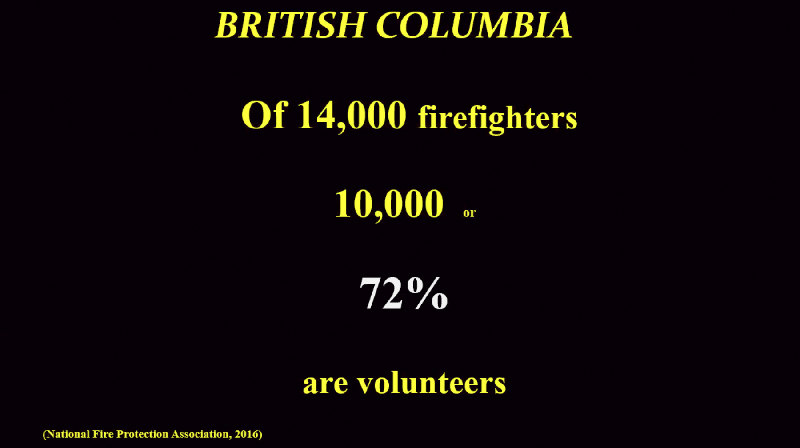 Over 10,000 of the 14,000 firefighters in B.C. are volunteers. Resilience is the most common outcome of adversity, not mental illness. Resilience is complex and multifaceted, it cannot be made simple. There are so many definitions that none exactly fit this situation, but there are a lot of common factors. A program developed in BC may not translate directly to other jurisdictions or countries.
Over 10,000 of the 14,000 firefighters in B.C. are volunteers. Resilience is the most common outcome of adversity, not mental illness. Resilience is complex and multifaceted, it cannot be made simple. There are so many definitions that none exactly fit this situation, but there are a lot of common factors. A program developed in BC may not translate directly to other jurisdictions or countries.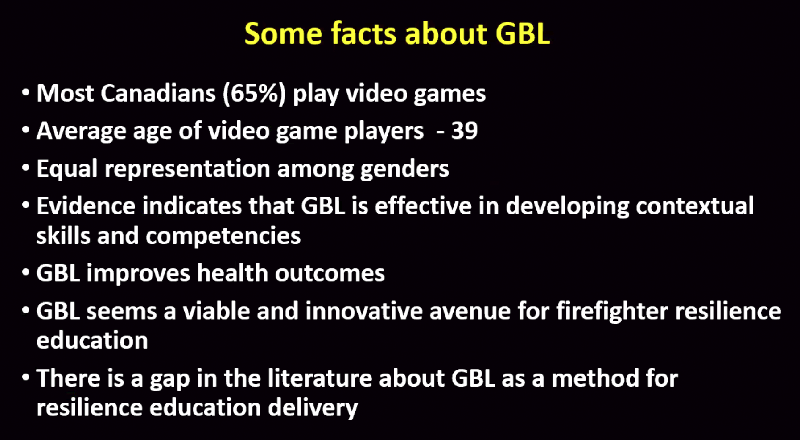 With the original grant money, she developed and taught the resilience course to multiple volunteer firefighter departments on Vancouver Island and the Gulf Islands. Immediately before and after the course, they tested for resilience, and then again two months later.
With the original grant money, she developed and taught the resilience course to multiple volunteer firefighter departments on Vancouver Island and the Gulf Islands. Immediately before and after the course, they tested for resilience, and then again two months later. 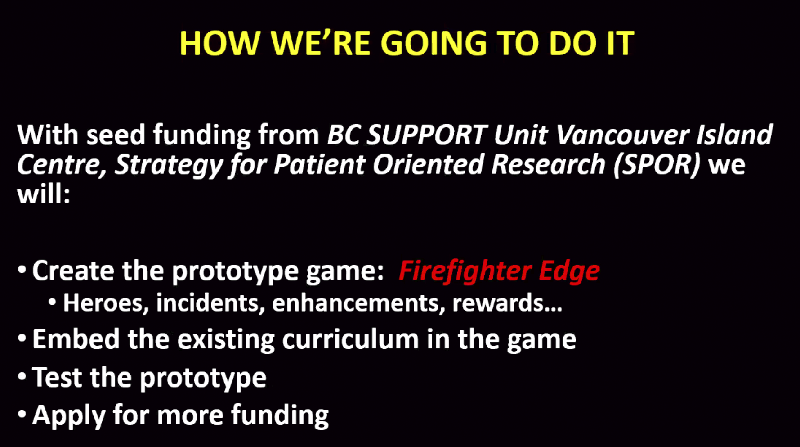 They found that firefighters are already moderately resilient and that their resilience was measurably increased by the course. Firefighters already have several practices and techniques to develop resilience (gym, mindfulness, yoga, humour, outdoors activity), and the course added to these (cognitive and attitudinal as well as behavioural skills). Higher resilience is linked to better mental health, better job performance, decreased stress and increased job satisfaction and retention.
They found that firefighters are already moderately resilient and that their resilience was measurably increased by the course. Firefighters already have several practices and techniques to develop resilience (gym, mindfulness, yoga, humour, outdoors activity), and the course added to these (cognitive and attitudinal as well as behavioural skills). Higher resilience is linked to better mental health, better job performance, decreased stress and increased job satisfaction and retention. 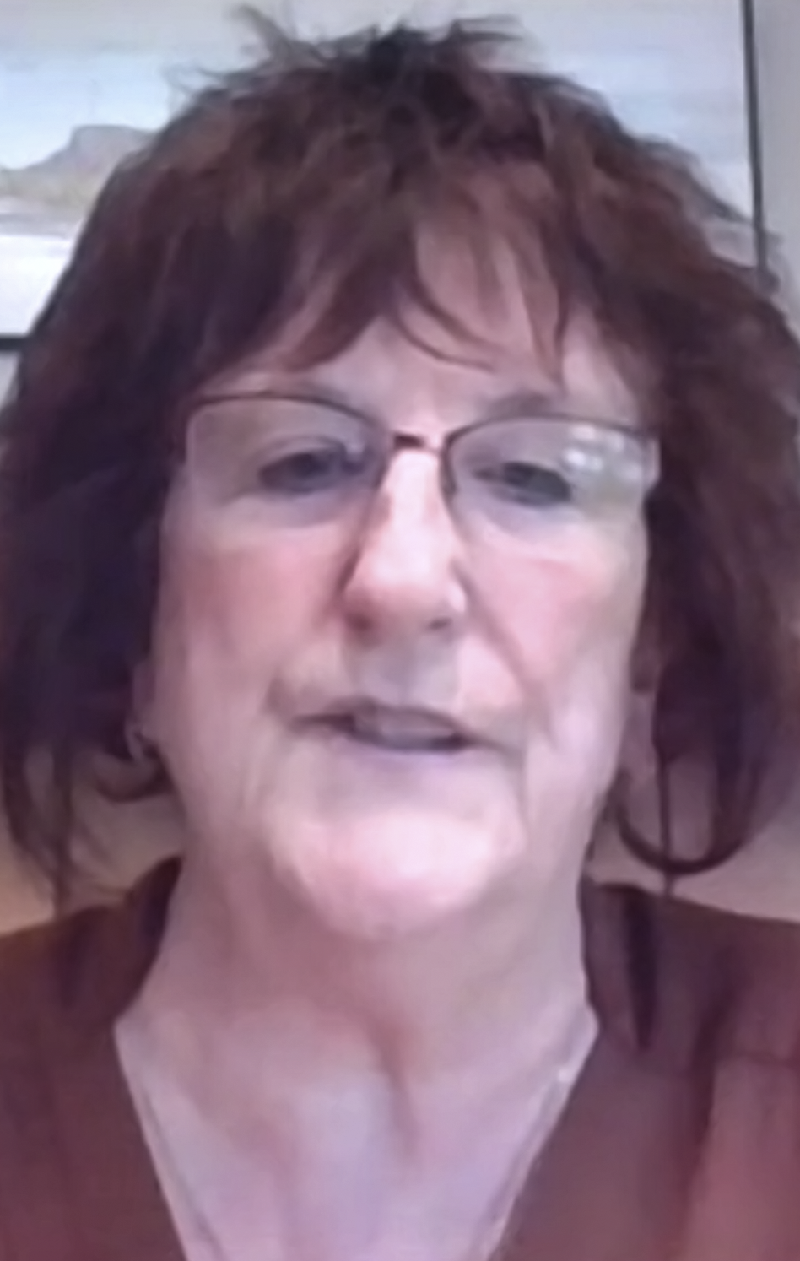 They wished to get this training out to a wider audience. It's not practical to deliver directly to each VFD in BC, and not everyone has good internet access for online delivery. Rob Fell is not only a volunteer firefighter but also the CEO of Hypersurge gamification service.
They wished to get this training out to a wider audience. It's not practical to deliver directly to each VFD in BC, and not everyone has good internet access for online delivery. Rob Fell is not only a volunteer firefighter but also the CEO of Hypersurge gamification service. He suggested developing a game to provide the resilience training and curriculum. Over 65% of Canadians play video games, the average player age is 39 and all genders are represented. Professional firefighters and aircraft pilots have used simulation for years to learn and train. The nursing program at VIU has also used simulations for training.
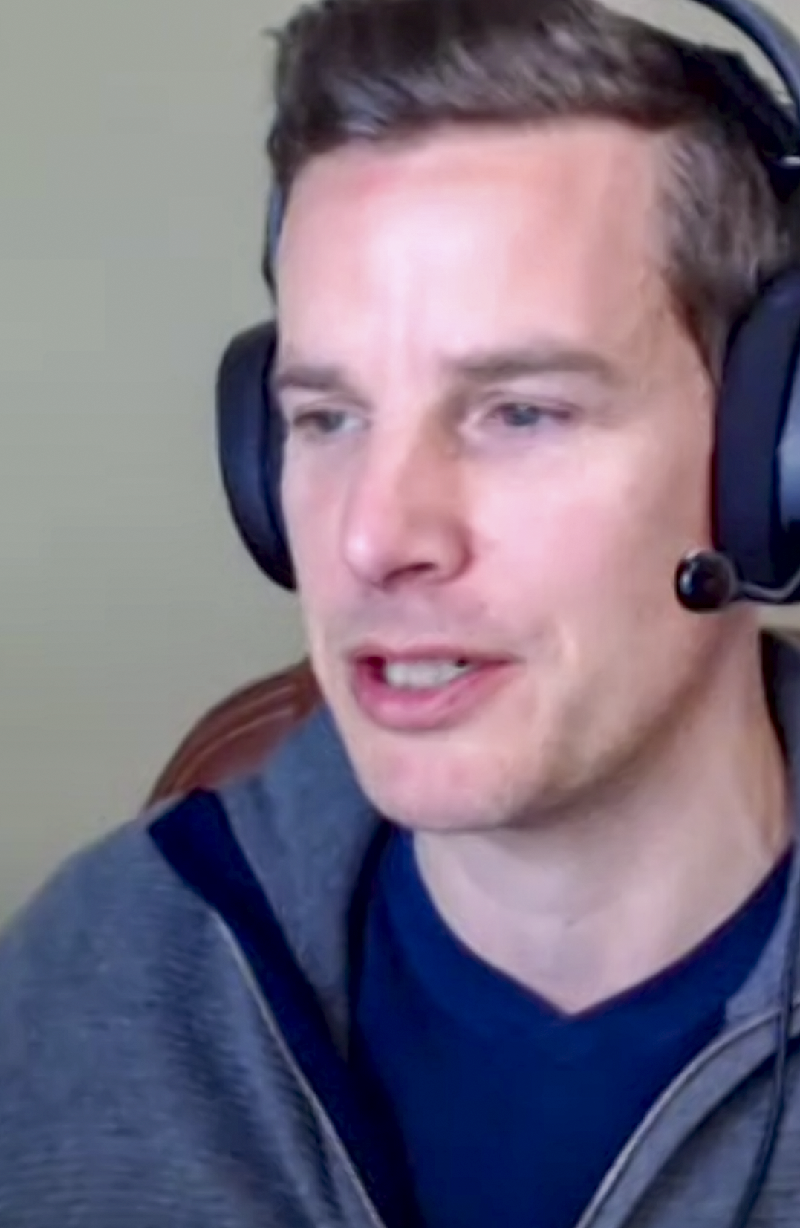 The initial funding is to develop a game they are calling Firefighter Edge, and they will include the existing curriculum. More will be incorporated as the program goes forward. The direct feedback and inclusion of firefighter experience will be critical. Rob provided an outline of how the program and game will be developed using player feedback. While it may appear simple on the surface, there will be deep resources built into the background to support training.
The initial funding is to develop a game they are calling Firefighter Edge, and they will include the existing curriculum. More will be incorporated as the program goes forward. The direct feedback and inclusion of firefighter experience will be critical. Rob provided an outline of how the program and game will be developed using player feedback. While it may appear simple on the surface, there will be deep resources built into the background to support training.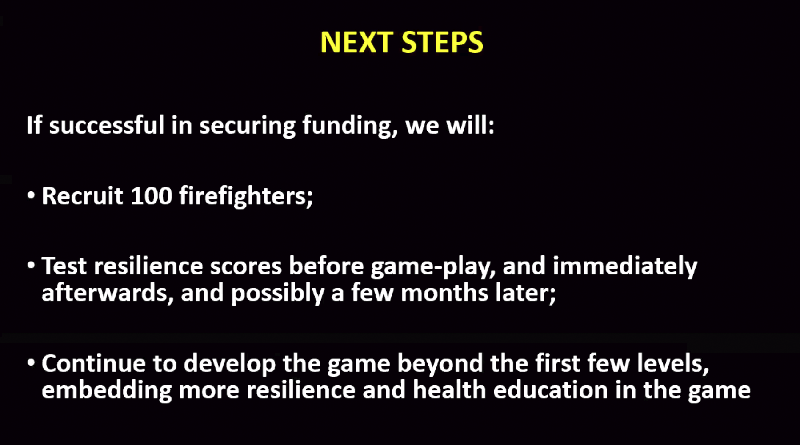 Q&A
Q&A
Lucie Gosselin asked about the participant testing. The same tests were given immediately before and after the course, then two months later.
Denise Wittkofski asked if there were games developed for the military that could be a starting point for this game. Rob said it will be based on the current course training, but other experiences can be added later. The current funding is just for the prototype, but interest has been expressed by several other agencies.
Ross White asked about the application of this to the paramedics. They have immediate access to firefighters and nurses to develop the initial prototype but hope that it will snowball further in the future.
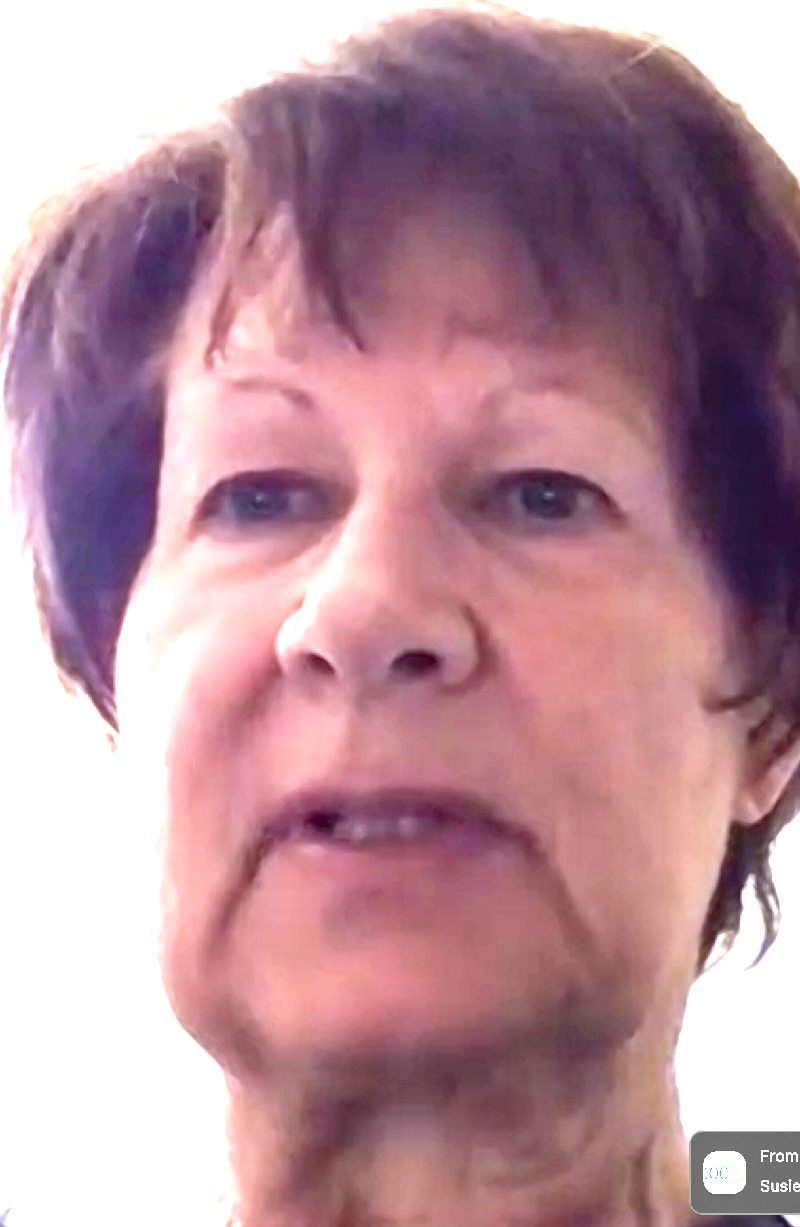 Kathy Smith asked about the difference in training between full-time and paid-on-call firefighters. A program was developed and funded in the Lower Mainland for the professional services, but was not available to the volunteers, that program also covered more than resilience. The volunteer firefighters have less access to mental health resources, partly because their limited budget often goes to life safety equipment. Kathy asked if this was directed towards PTSD. Not really, since volunteers often encounter their own community, they experience different stress than full-time firefighters. PTSD is a completely different condition, and there is no identified prevention.
Kathy Smith asked about the difference in training between full-time and paid-on-call firefighters. A program was developed and funded in the Lower Mainland for the professional services, but was not available to the volunteers, that program also covered more than resilience. The volunteer firefighters have less access to mental health resources, partly because their limited budget often goes to life safety equipment. Kathy asked if this was directed towards PTSD. Not really, since volunteers often encounter their own community, they experience different stress than full-time firefighters. PTSD is a completely different condition, and there is no identified prevention.Susie Stephens asked about the quantitative measurement compared to qualitative. The WorkSafeBC study did include some qualitative questions. Leigh prefers qualitative assessment, but funding agencies need quantitative assessments.
Brent Stetar asked about game theory from a technical viewpoint. Rob Fell’s answer indicated that game theory was not yet in their planning. The game will not be truly interactive and competitive, it is aimed at giving positive feedback to a positive action.
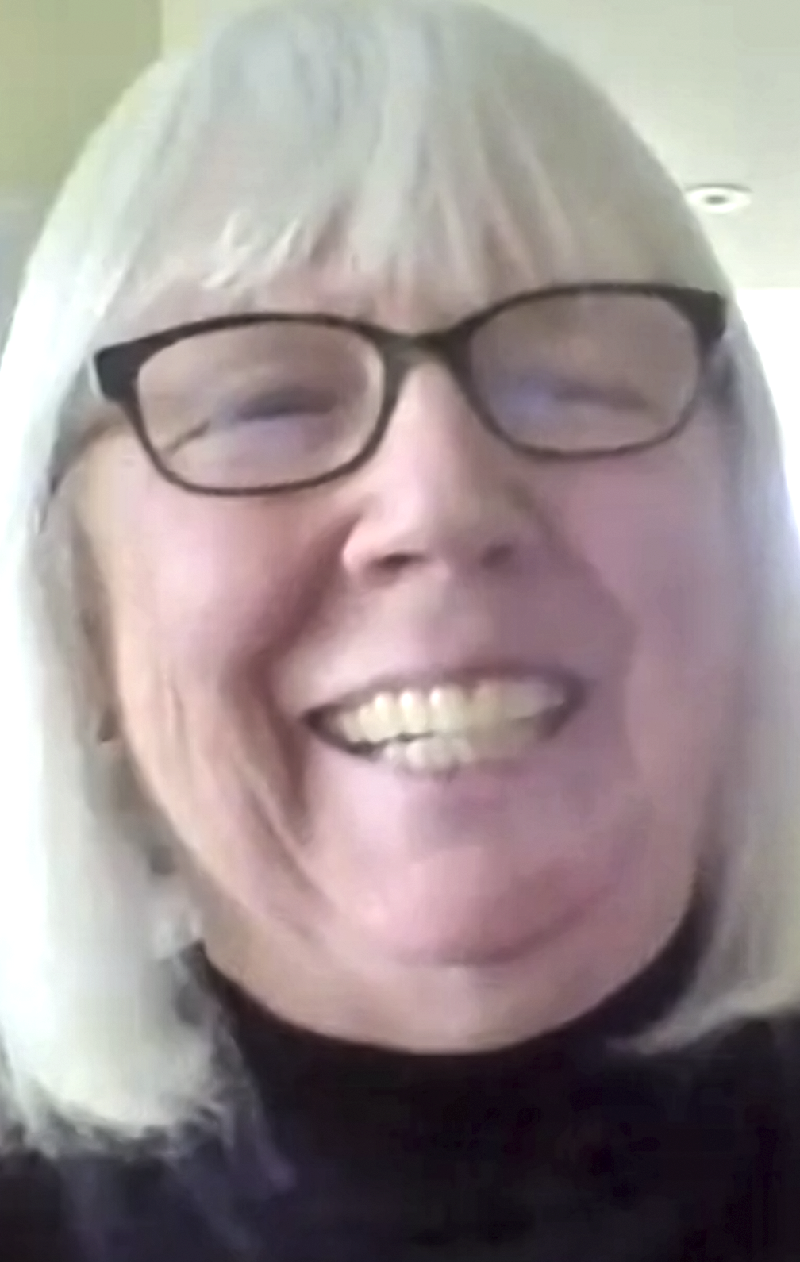 Wendy Pratt’s son is a firefighter in Yellowknife, and she asked if this game is to be exclusive to B.C. Since the funding is based in B.C., the application will be limited to B.C. In the next steps, both the funding and application will expand beyond.
Wendy Pratt’s son is a firefighter in Yellowknife, and she asked if this game is to be exclusive to B.C. Since the funding is based in B.C., the application will be limited to B.C. In the next steps, both the funding and application will expand beyond.Debbie Narver thanked Leigh and Rob. We appreciate the effort to share this exciting program with us, and the potential for it to help firefighters is great. We look forward to hearing the results of the pilot and the next steps.
Happy & Sad Bucks
Sergeant at Arms Dave Hammond finally conquered the limitations of his iPhone and asked Laurie to identify those with Happy Bucks.
President Bob was happy to report two new member applications in process – Roy Bennet and Mila Skeeles. These have been published in COGS and reviewed by the Board last Tuesday.
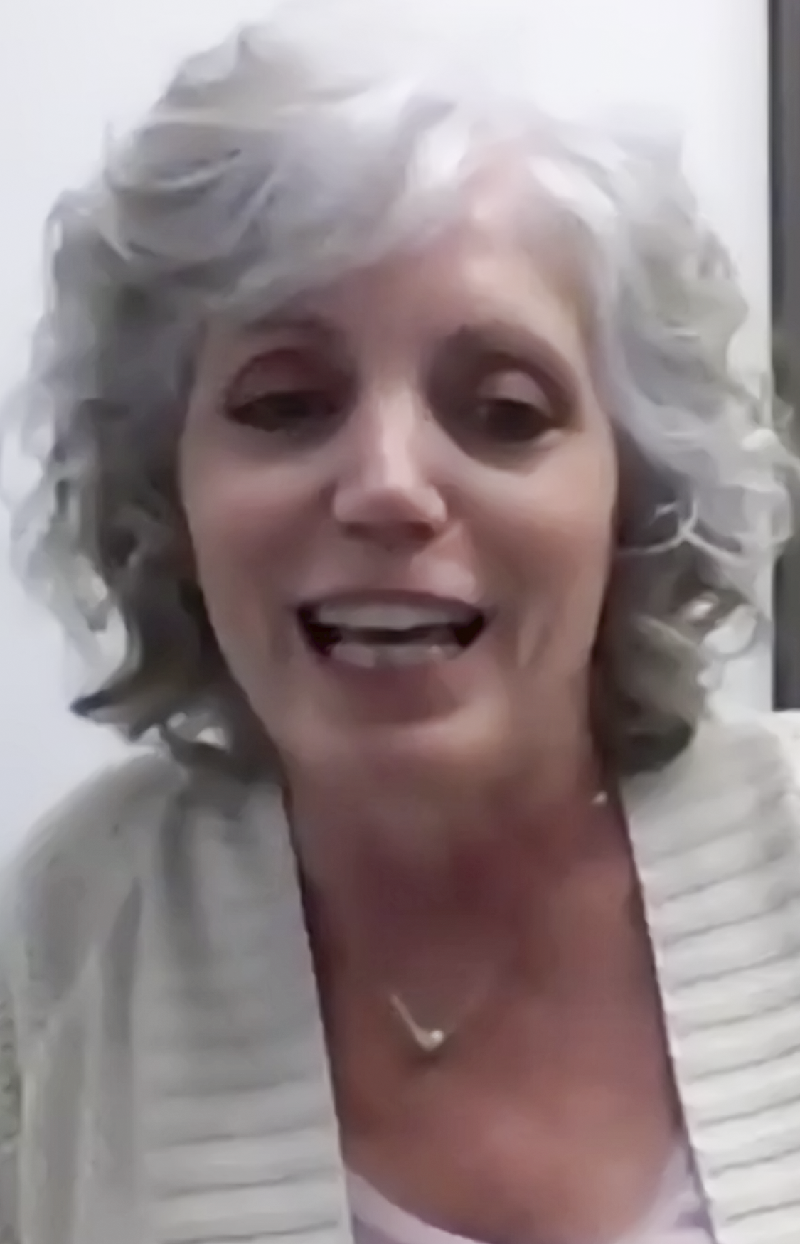 Janeane was happy to get a big package yesterday (her birthday), and found it was a framed certificate from PDG Mo Fritz-Roberts to congratulate our club on 100 years of service. President Bob shared the certificate on his screen.
Janeane was happy to get a big package yesterday (her birthday), and found it was a framed certificate from PDG Mo Fritz-Roberts to congratulate our club on 100 years of service. President Bob shared the certificate on his screen.Egon Holzwarth will have a Happy Buck next Friday if his name is correctly spelled – with an A not an O.
Keith McFarlane had two bucks because President Bob “threw him under the bus” as a computer guru; any question should go to technical whiz Dave Hammond. For another buck, we need a better incentive than President Bob in drag or a bungy jump to reach the $35 donations. President Bob suggested that the final 13 form a committee to identify an incentive. John Hankins thought that was a great idea.
 President Bob reminded us that we will be cooking next Friday evening; he thanked DG Greg for joining us, our new member prospects for joining us, and Leigh and Rob for their presentation. A happy Valentines Day this weekend, and Family Day on Monday. A toast to Rotary and the Queen.
President Bob reminded us that we will be cooking next Friday evening; he thanked DG Greg for joining us, our new member prospects for joining us, and Leigh and Rob for their presentation. A happy Valentines Day this weekend, and Family Day on Monday. A toast to Rotary and the Queen.